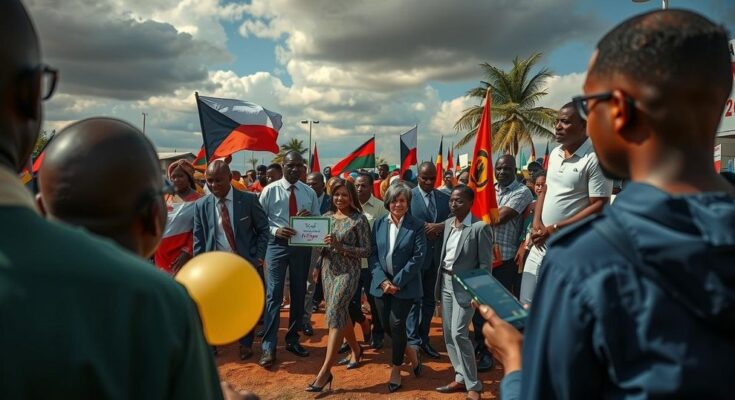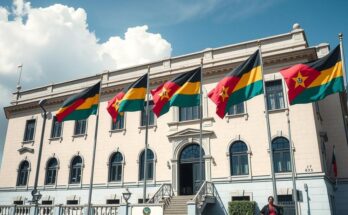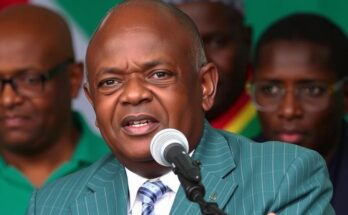Namibia is set for critical 2024 elections that may challenge SWAPO’s long-standing dominance amid rising youth dissatisfaction. Vice President Netumbo Nandi-Ndaitwah leads the race, facing significant challengers like Panduleni Itula and other political leaders. Key electoral issues include economic inequality, unemployment, and housing crises, with voter turnout pivotal to determining the elections’ outcome in this politically charged environment.
In the wake of significant political upheaval in Southern Africa, Namibians are poised to participate in presidential and parliamentary elections that are anticipated to be the most fiercely contested since independence. Amidst declining support for the ruling SWAPO (South West Africa People’s Organisation) party, dissatisfaction among the youth poses a potential threat to the incumbents, who have held power since 1990. With 21 parties vying for 96 parliamentary seats and 15 presidential candidates in the running, the dynamics of this election signify a noteworthy shift in the political landscape of Namibia.
Vice President Netumbo Nandi-Ndaitwah emerges as the favorite for the presidency, aiming to make history as the country’s first female president, following her predecessor Hage Geingob’s controversial tenure marked by corruption allegations. Challenging her is Panduleni Itula, a former SWAPO member who has criticized the party for endemic corruption, particularly linked to the ongoing fish-rot scandal. The elections also feature established opposition leaders like McHenry Venaani of the Popular Democratic Movement and Bernadus Swartbooi of the Landless People’s Movement, highlighting the fracture in Namibia’s opposition.
Key issues at stake include rampant economic inequality, severe unemployment among youth, and a critical housing crisis stemming from the legacy of apartheid. With Namibians experiencing one of the highest inequality rates globally, the elections represent not only a political contest but also a pivotal moment for addressing the pressing socio-economic challenges facing the nation. While analysts predict a peaceful electoral process, concerns about delayed results could foster tensions reminiscent of the recent electoral events seen in neighboring countries.
The upcoming 2024 elections in Namibia occur against a backdrop of significant unrest and political changes in Southern Africa, where long-standing ruling parties have faced severe challenges. The SWAPO party’s long-held authority since the nation’s independence from apartheid South Africa in 1990 is increasingly questioned as public discontent rises, particularly among the youth. Analysts suggest that despite recent setbacks for SWAPO, the opposition remains fragmented. This election marks the seventh since independence, with millions registered to vote, indicating a crucial turning point in Namibia’s political future. Furthermore, Namibia’s socio-economic landscape is fraught with issues, including extreme inequality and high unemployment rates, particularly among younger demographics. The political discourse centers around addressing these critical concerns, hence the elections serve as a litmus test for the ruling party’s future viability in an increasingly challenging environment for governance.
As Namibia approaches the 2024 elections, the potential for the SWAPO party to lose its decades-long grip on power looms large. Facilitated by rising public dissatisfaction, especially among young voters, the outcomes of this election could signify a transformative moment for the nation. Key issues of economic disparity, unemployment, and a housing crisis will undoubtedly shape the electoral debates. Ultimately, November’s vote will not only determine leadership but also the trajectory for Namibia’s response to its deep-rooted challenges. Observers will closely monitor the integrity of the electoral process, particularly regarding the timely announcement of results, to ensure a peaceful democratic transition.
Original Source: www.aljazeera.com




